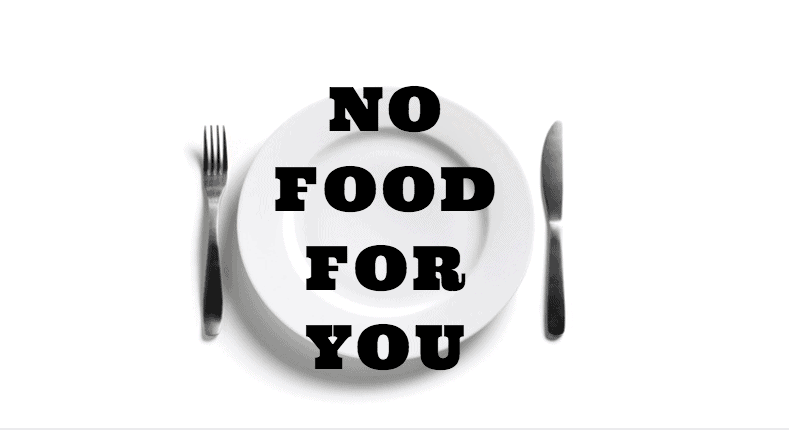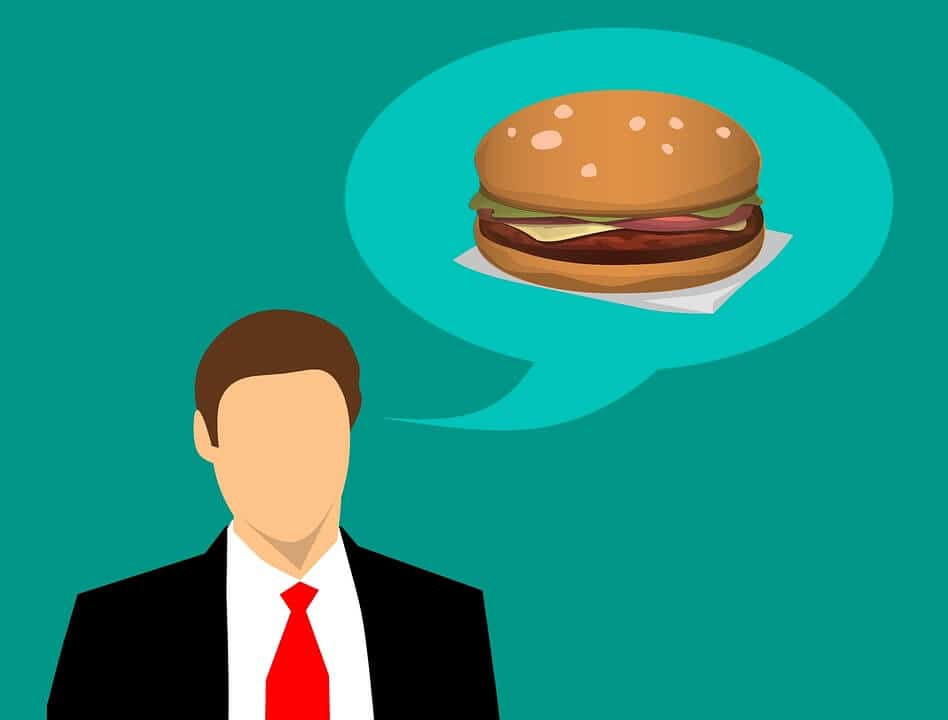What does fasting mean? Or better yet, what the Fasting Diet is? It is abstinence or significant reduction of some food or all foods for a specified period. In addition to food, other people deprive themselves of water or any other drink.
An absolute fast involves not eating or drinking anything. It is also known as a dry fast. Water fasting, on the other hand, is not strict on water intake.
Another fasting definition is the metabolic state of an individual who has not eaten through the night. For instance, not eating eight to twelve hours after your previous meal is considered a fast.
In the 1930s, an American Scientist established that mice had a more extended lifespan when they consumed fewer calories. Today, other researchers back up the scientist’s claim with similar findings from roundworms, fruit flies, and monkeys, Weight Loss Resources reports.
What is the Fasting Diet?
There are various approaches on how to do fasting. First, you ought to have a purpose for the fast. Some people fast to lose weight while others add a spiritual or religious element to their fasting.
If you’re fasting to lose weight you’ll need to maintain healthy eating after the fast. Using an app like Noom, with an extensive food database, allows you to track all your nutrition.
You should ensure that you are physically fit to go some time without food. People who are sick or at a young age are not supposed to go for long hours without food.
People have used different methods to approach their fasting. A group of individuals chooses to skip dinner while others prefer not taking breakfast. There is the twenty-four-hour protocol that involves skipping two meals in a day. To keep the process organized and easy to follow, you can create a tabulated program.

What Is A Fasting Diet?
What is a fasting diet? The fasting diet is also known as the 5.2 Diet. It broadly means, five days of normal eating and two days of reduced calorie intake. This program is designed to create a better, healthier life. The weight loss part comes as a bonus.
According to the rule of thumb, women need two thousand calories while men require two thousand four hundred calories in a day. On a fast day, women consume 500 calories, and men eat 600 calories.
Benefits of a Fasting Diet
There are several benefits of a fasting diet. Some of these advantages include:
Weight Loss
To most people, this is the primary purpose of fasting diet. Many people have reduced their body mass with the help of a fasting diet. Dramatic weight loss within a short period raises questions of whether fasting is healthy or not. If your doctor forbids fasting, then you should not engage in it.
According to the International Journal of Obesity, fasting can promote fat loss. Additionally, specific fasting strategies like intermittent fasting can help aid in weight loss, per CFP.
Increases Lifespan
The less you eat, the longer you live. It is a concept that has stood the test of time. As absurd as it may sound, little food intake is equal to longevity. Your metabolism remains efficient and fast.
Improves Insulin Responsiveness
Fasting allows the body to process carbohydrates better than it would without a fast. It improves insulin sensitivity in the body (see research in the Journal of Applied Physiology).
Improves Eating Habits
Patients that tend to bing eat can improve their eating habits through a fasting diet. Other people who just neglect their eating patterns due to a busy schedule, also improve their habits by fasting.
Improves the Immune System
A fasting diet keeps the immune system up and running smoothly. People who strictly abide by their fasting diet have a stronger immune system.
Other benefits of a fasting diet are; better brain functioning, self-enlightenment, prevent acne and clears the skin.
A healthy diet can maximize overall health and help you lose weight, but how do you know what you’re eating? With Noom you track foods daily so you see the overall nutrition and fill in the gaps.

Fasting Diet Guidelines
There are basic fasting diet rules you should know before going into fasting. Before starting the fast diet you need to know; is a fasting diet healthy? It is paramount for you to consult a doctor before going on a fasting diet. Other patients undergoing treatment also need permission from their doctors.
Rather than fasting two days in a row, you can split the days. For instance, instead of going on a fast on Saturday and Sunday, you can fast on Saturday and Monday. The two days in a row fast is excruciating. However, it is more convenient to fast back to back.
Drastically reducing calories from your regular diet is not bad. This approach is as efficient as standard dieting. Fasting helps the body repair itself. However, nursing mothers, small children, expectant women, and children should not fast.
At the start of the fast, you will feel hungry and unwell. Soon you will adjust, and these pangs will pass quite quickly. The idea is keeping you occupied with your daily routines such as school and work.
During your fasting diet, you should avoid vigorous exercises. If you must workout, do it in the mildest of ways.
The fasting diet is not strictly a 5.2 diet. You can make it a 4.3 if you wish. However, if you are a beginner, it is safe to stick to the 5.2 diet plan.
You should shift to a 6.3 after the 5.2 helps you achieve a healthy weight. Adjusting to a new system is difficult, but it is healthier than sticking to your old feeding ways.
You also need to ask the question; what time does fasting start? You are then able to make a consistent tabulated format that you will follow in your fasting diet.
The fasting diet tips above help you have a natural and comfortable fasting experience.
Is a Fasting Diet Healthy?
The question of whether a fasting diet is safe is the most common question people ask before going into a strict fasting diet. Fasting for a day is not harmful neither is fasting for a week for people who are healthy. Provided you do not get dehydrated a few days are harmless. Long periods of fasting are quite harmful to the body.
During extended periods of fasting, you notice symptoms like intolerance to cold temperature, fatigue, dizziness, dehydration, and constipation. You will see these signs when you deprive the body of minerals, vitamins, and other numerous nutrients the body requires.
Lactating mothers and expectant women should not go on a fasting diet.
As reported by the American Association for the Advancement of Science, a group of experts conducted scientific research claiming that fasting for a week is healthy. In their claim, they felt that the five-day fasting slows down aging.
As we age, we have different nutritional needs. When trying to lose weight, we can often lose sight of those needs. With Noom, you log your food daily to see whether or not your diet is as healthy as it could be.

Intermittent Fasting
Intermittent fasting is among the top most health trends currently all over the world. Most people have made it a lifestyle to aid in weight loss and maintenance of a healthy existence. Studies have proven that intermittent fasting positively affects your brain and body (see study in Cell Metabolism).
What is Intermittent Fasting?
Intermittent fasting is a fasting pattern that involves a sequence between when to fast and when to eat. It is the consumption of calories at a particular window in twenty-four hours and eating less for a more significant window of that day. It is broadly a pattern of fasting.
For example, the most common intermittent fast involves willingly not eating for sixteen hours in a day. Since time immemorial people were fasting in their respective religions like Islam, Christianity, and Buddhism. In the long run, intermittent fasting became a natural experience.
Below is the intermittent fasting guide that will make your fast very easy.
How To Do An Intermittent Fasting Diet
Many people lack the knowledge on how to do an intermittent fasting diet. There are various approaches to an intermittent fast. In these numerous ideas, you ought to divide days or weeks into eating and fasting phases. These phases provide the foundation for the intermittent fasting guide. Some of the most common methods include:
The Eat-Stop-Eat Method
The eat-stop-eat method involves merely not eating from dinner today to dinner the next day. Most people use this method once a week.
The 16/8 Mode Or The Lean Gains Protocol
In this method, you do not eat breakfast. You can set your other meals at intervals of eight hours. Therefore, you fast for 16 hours in between (see study in the Journal of Translational Medicine).
The 5.2 Diet
It is a popular fasting method. The 5.2 diet involves eating for five days in a week and fasting for the other two. The two days that you do not eat are not necessarily back to back.
The 36 Hour Fast
The 36 hour fast involves an entire day of fasting. It is, for example, eating dinner on Monday, fasting for the whole of Tuesday, and eat next at Wednesday’s breakfast. With this method, you will realize quicker weight loss.
The Extended Fast
An extended fast is indefinite. To go for this fast, you need to be guided by a medical doctor. If you go on for more than two days, you should accompany your fast with multi-vitamins. People should not fast for more than fourteen days to reduce the risk of re-feeding syndrome.
These methods assure you of weight loss due to the reduced calorie intake. However, they are only useful if you do not overeat during the eating periods. The 16/8 is the most common intermittent fasting method.

Intermittent Fasting Plan
Do not eat multiple meals in a day. What to eat when intermittent fasting affects how many times in a day you eat. Three meals in a day are too much. The less you eat the healthier you get.
Choose between breakfast and dinner. Intermittent fasting guarantees weight loss. However, you need to have discipline. Do not eat both breakfast and dinner, states Mercola.com. If you choose dinner, you should have it three hours before your bedtime.
Avoid eating late in the night. After a meal, you have to wait at least three hours before you got to bed. The practice is to allow for food digestion before you sleep. It also increases longevity.
Drink your water before meals. It is a major intermittent fasting hack that helps in losing weight. Add 500 ml water two hours before meals, to your fasting plan.
Train your body to burn fats to fuel. The body can naturally burn fat that is used up as fuel. If you continuously eat every meal in a day, it depends on the fuel you take in. Intermittent fasting trains the body to depend on its fuel. In the long run, it reduces the fat using it up as fuel.
A major part of intermittent fasting is tracking the foods you eat. Noom, a weight-loss app with a huge database of foods, is the ideal partner to help you lose weight.
Intermittent Fasting Meals
Intermittent fasting foods are more beneficial to your health compared to your traditional meal pattern. Previously, if you deprived yourself of food, you would stand the risk of getting unhealthy. Intermittent fasting, however, is different. It is carefully planned out and certified by medical experts.
Some of the foods you can add to your food plan include:
- Vegetables
- Raw fruits
- Yogurt
- Eggs
- Coffee
- Tea
Drastically reduce the calories in your diet. Experts have proven that cutting 20 to 40 percent of calories in your daily intake equals improved metabolic and cardiovascular health, Stanford Medicine reports.

Biblical Fasting
What does fasting mean to a Christian? Biblical fasting is willingly depriving oneself of meals and as encouraged by Jesus Christ himself in the Bible. Christians accompany it by a fasting prayer or different prayers. If you are looking to fast according to the teachings of the Bible, you do it with sincerity and seriousness. Christians believe that when they deprive themselves of nourishment, God sustains them and he is their strength during the fasting period.
Unlike fasting for weight loss or bodily health, Christians fast with a heart of humility. Nobody else needs to know they are fasting as is the message in the book of Mathew 6:17-18. Fasting as per the scriptures in the bible is with a purpose. Christians believe that fasting strengthens their prayers to God. Some of the goals of fasting and prayer are to get healing, to have a happy marriage, not to lack, and to get your heart’s desires.
Christian fasting as is explained in the Bible, last for different periods of time. People have tried to fast as long as Jesus Christ did in the bible. Others fast for a day or a week at most accompanied by a fasting prayer. Christians, however, may be exposing themselves to dire health risks through extreme fasting.
Spiritual Fasting Diet
You can accompany your fasting and prayer with a religious fasting diet. Christian fasting, however, does not have a specific diet to abide by during the period. Below are the different approaches Christians take while they are on a fasting diet for God.
- A standard fast. – This fast involves intake of water only.
- Absolute fast- it is an extremely fast where Christians go without food or water.
- Intermittent fast- Christians divide their days into windows of eating and not eating.
- Partial fast- involves restricting certain foods or drinks and not others.
The spiritual fasting diet also includes the Daniel Fast. It refers to what Jesus ate during his fasts. Many Christians strive to emulate the exact diet of Jesus in the Bible. The Daniel fast is provided for in the Bible, in the book of Daniel 1:12 and Daniel 10:2-3.
According to Daniel 1:12, the Bible mentions a ten day fast of vegetables and water. In Daniel 10:2-3, Daniel went on a three week fast where he deprived himself of pleasantries. He chose to forego meat, wine, and any form of anointing. Christians believe that the Daniel diet is the ultimate fasting diet for God.
The Spiritual Diet involves foods such as:
Vegetables: You can have fresh or cooked veggies but not canned.
- Cucumber
- Eggplants
- Kale
- Lettuce
- Mushrooms
- Carrots
- Celery
- Cauliflower
Beverages:
- Vegetable juice
- Almond milk
- Water
- Coconut kefir
- Coconut water
Whole grains:
- Millet
- Amaranth
- Oats
- Brown rice
- Buckwheat

Fruits, fresh or cooked:
- Berries
- Cherries
- Apples
- Kiwi
- Mangoes
- Papaya
- Grapes
- Guavas
- Melons
- Nectarines
- Citrus fruits
Legumes: Dried and cooked in water, including:
- Lentils
- Black beans
- Black-eyed peas
- Split beans
- Pinto beans
Nuts and seeds:
- Chia seeds
- Walnuts
- Cashew nuts
- Almonds
When you are on a spiritual fasting diet, you should avoid foods like:
- Energy drinks
- Mint
- Oils
- Juices
- Iodized salts
- Meat
The purpose of a biblical fast is to feel closer to God. You also need to make sure you’re getting the nutrients you need to stay healthy. Tracking food with Noom is quick and easy – and with an extensive food database, you’ll find the foods you need.
Spiritual Benefits of Fasting
Christians believe in numerous spiritual benefits of fasting. Below are some general benefits of spiritual fasting:
- Fasting creates a closer bond with God
- Fasting breaks uncouth habits and addictions
- It makes you more sensitive to the word of God as is displayed in the written scriptures
- Fasting makes you rely on God for strength when you are weak
The spiritual advantages of fasting are in a two-fold; both physical and emotional benefits.
Physical benefits
- It promotes weight loss
- Helps break the addiction to sugar
- It supports healthy responses to inflammation
- It improves the skin
- Detoxifies the body from unwanted substances
- It enhances healthy energy levels in the body
- Mental or emotional benefits
- It increases shalom and peace of mind
- Reduces stress
- Increases your trust in God
- It clears all negativity in the brain and feelings

Scriptures to Read While Fasting
Christians accompany their fasting and praying with scriptures. These strengthen their faith in God and brings them closer to Him. Below are some scriptures to read while fasting.
1 Corinthians 7:5
This book talks about deprivation to devote oneself to prayer. It also talks about fasting to fight Satan’s temptation.
2 Samuel 1:2
The people of Israel fasted and prayed after they fell by the sword.
1 Samuel 7:7
Israelites fasted and prayed when they were afraid of the Philistines.
Acts 13:12
In this scripture, Saul and Barnabas fasted to worship the Lord.

Daniel 10:3
In this book, Daniel mentions the foods he did not eat during his three week fast. It comprises of the Daniel Fast diet.
Esther 4:16
Esther asks the Jews to fast and pray for her before she went to the king. She believed that through fasting, the King would heed the cries of her people.
Joel 2:12
In this verse, God asks his people to fast and weep to return to his glory.
Luke 2:37
The scripture outlines the story of the widow who was 84 years old. She fasted and prayed in the temple even in her old age.
2 Samuel 12:15-17
God struck David’s son with an illness. David went into prayer and fasting for the healing of his son.
Luke 4:2-4
In this scripture, Jesus fasted in the wilderness and overcame the temptations of the devil.
After fasting, whether for weight loss or spiritual purposes, you’ll need to return to a healthy diet. Noom helps you log foods each day. You see what you’re eating and where you can improve your diet – all in a smart app.
What Users Are Saying
“My resolution for 2020 was to lose the weight I put on after getting out of the military. I found IF in February, and it took about 8 months to hit my goal weight! Schedules: I started out doing 16:8, and gradually experimented with fasting schedules all the way up to ADF. I found the best schedule for me was 20:4, and so that’s what I stuck with most of the time. I wasn’t crazy strict on weekends or holidays, and I didn’t count calories. The key is to find something sustainable! Otherwise you will burn out and quit. I averaged about 0.6 pounds a week weight loss – DON’T GET DISCOURAGED BY SLOW PROGRESS. That was so so difficult to keep a positive attitude when I saw posts on here with people dropping 20 pounds in a month. That’s just not realistic for 99% of people, and most of the time not safe.”
“I platued for 7 weeks then had day off wth hubby. It’s now 7 weeks later n body is not happy wth 7 weeks of bad eating. Trying so hard to just survive 1 good day then ill b able to soldier on. We have put bak on consistent 1 kg which is 2.2 lb per WEEK!! I did that 1st day off thinking it wld trick my body out of the plateau. Unfortunately I forgot I have an eating disorder n doing that mentally messed wth me. Trying to get bak on track.”
“Over halfway to my goal! July 22-October 22 35 lbs down! (SW: 206, CW:171, GW: 150). I’m finally starting to see and feel the difference! So long back fat and hello better fitting clothes!! Next task, that stubborn lower belly!”
Bottom Line on the Fasting Diet
Fasting is willingly depriving oneself of food or drink. Intermittent fasting is mainly a model about periods of eating and refraining from eating. Religious fasting is about deprivation of food or water, or both, for a spiritual purpose.
Fasting Diet Questions & Answers
Fasting can be a great way to jumpstart weight loss, but it is important to understand the potential risks. For most people, it is safe to fast for up to 12 hours at a time. If you want to extend your fast beyond that, it is recommended to consult with a doctor or healthcare professional first. A period of intermittent fasting, such as 16:8 (16 hours of fasting and 8 hours of eating) can give you the benefits of both calorie restriction and better control over food choices throughout the day. Start slowly and monitor your progress with care – happy fasting!
Fasting is an extreme dieting technique that can lead to drastic weight loss in a short period of time, but it should be done with caution and under the supervision of a physician. Generally, people who fast for a week can expect to lose about 1-2 pounds per day, though individual results may vary. It is important to note that fasting does not necessarily result in permanent weight loss and can even have serious medical consequences if done improperly.
A fasting diet typically involves reducing the amount of food consumed and increasing the length of time between meals. When fasting, it is common to consume only water, tea, or other non-caloric beverages while abstaining from food. It may also be possible to consume calorie-free liquids such as bouillon or vegetable broth, though this should be done with caution so as not to add too many calories. Fasting can be done for short periods of time (such as 12–24 hours) or longer if desired.
Fasting Diet Questions & Answers
Fasting can be a great way to jumpstart weight loss, but it is important to understand the potential risks. For most people, it is safe to fast for up to 12 hours at a time. If you want to extend your fast beyond that, it is recommended to consult with a doctor or healthcare professional first. A period of intermittent fasting, such as 16:8 (16 hours of fasting and 8 hours of eating) can give you the benefits of both calorie restriction and better control over food choices throughout the day. Start slowly and monitor your progress with care – happy fasting!
Fasting is an extreme dieting technique that can lead to drastic weight loss in a short period of time, but it should be done with caution and under the supervision of a physician. Generally, people who fast for a week can expect to lose about 1-2 pounds per day, though individual results may vary. It is important to note that fasting does not necessarily result in permanent weight loss and can even have serious medical consequences if done improperly.
A fasting diet typically involves reducing the amount of food consumed and increasing the length of time between meals. When fasting, it is common to consume only water, tea, or other non-caloric beverages while abstaining from food. It may also be possible to consume calorie-free liquids such as bouillon or vegetable broth, though this should be done with caution so as not to add too many calories. Fasting can be done for short periods of time (such as 12–24 hours) or longer if desired.
Article Sources
- https://www.weightlossresources.co.uk/diet/reviews/alternate-day-fasting.htm?utm_expid=2678559-35._Oj3MwZlSbGpQYCc9SbiLQ.0
- https://noom.8utb.net/c/1720052/500038/8591
- https://pubmed.ncbi.nlm.nih.gov/25540982/
- https://www.ncbi.nlm.nih.gov/pmc/articles/PMC7021351/
- https://www.physiology.org/doi/full/10.1152/japplphysiol.00683.2005
- https://noom.8utb.net/c/1720052/500038/8591
- https://www.sciencemag.org/news/2017/02/five-day-fasting-diet-could-fight-disease-slow-aging
- https://noom.8utb.net/c/1720052/500038/8591
- https://www.ncbi.nlm.nih.gov/pmc/articles/PMC3946160/
- https://translational-medicine.biomedcentral.com/articles/10.1186/s12967-016-1044-0
- https://www.dietdoctor.com/fasting-and-re-feeding-syndrome
- https://articles.mercola.com/sites/articles/archive/2015/09/21/intermittent-fasting-calorie-restriction.aspx
- https://noom.8utb.net/c/1720052/500038/8591
- http://scopeblog.stanford.edu/2016/07/07/intermittent-fasting-fad-or-science-based-diet/
- https://noom.8utb.net/c/1720052/500038/8591
- https://noom.8utb.net/c/1720052/500038/8591
- https://www.reddit.com/r/intermittentfasting/comments/jgpkw0/2020_how_it_started_vs_how_its_going/g9roxmv/
- https://www.reddit.com/r/intermittentfasting/comments/jgzhif/feeling_terrible/g9tt7su/
- https://www.reddit.com/gallery/jgd2x9
Partner with Us!
Looking to promote your weight-loss products or services?
Our platform reaches a dedicated audience actively seeking the best solutions. Contact us to explore advertising opportunities and grow your brand with us.
Get in Touch

